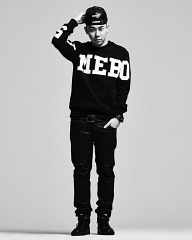 When thinking about K-pop, there are many adjectives that may spring to mind if you wish to describe it: imaginative, charming, entertaining. These are some of the more common words that one may associate with the genre. The word offensive, however, is not really one of them. Yet situations are starting to arise, particularly within the last year, that could cause people to think otherwise.
When thinking about K-pop, there are many adjectives that may spring to mind if you wish to describe it: imaginative, charming, entertaining. These are some of the more common words that one may associate with the genre. The word offensive, however, is not really one of them. Yet situations are starting to arise, particularly within the last year, that could cause people to think otherwise.
There have been a few instances in K-pop where events have occurred that have crossed a few boundaries, skipped across the fences of inappropriateness and settled into the realms of insensitivity. I’m talking about the situations where the religion of Islam has been brought into the spotlight, sparking controversies because various artists have used certain aspects of the religion within their songs that have inevitably come across as being, understandably, quite disrespectful.
As a Muslim and passionate fan of K-pop, I’ve experienced mixed emotions to these occurrences. Many spectators have had a difference of opinion on these events but what we can all agree on is that controversy has been stirred, and it definitely has not been good. Here is a roundup of the incidents that have occurred this past year and a look into why K-pop has clashed with the religion on each occasion.
CL’s MTBD Controversy
 As one of the more highlighted incidents in the media, most people are quite familiar with this one. However, if you’ve been living under a rock for some time, let’s summarise. Near the beginning of this year, 2NE1 released their album Crush which featured a solo track by CL, “Mental Breakdown”. Seems harmless enough right?
As one of the more highlighted incidents in the media, most people are quite familiar with this one. However, if you’ve been living under a rock for some time, let’s summarise. Near the beginning of this year, 2NE1 released their album Crush which featured a solo track by CL, “Mental Breakdown”. Seems harmless enough right?
However, a few days after release, YG uploaded a video onto YouTube of a live performance of the song, which is where things got pretty ugly. A portion of the backing track included a melodic recital of a verse from the Qur’an, allegedly taken from a video of a young Muslim boy actually reciting the verse in a manner which may sound like singing to those who are unfamiliar, but is in fact a very common way to read it. Due to the seriousness of the issue, YG proceeded to edit the video with some more appropriate adjustments as heard in the performance video below, after admitting that it sampled a portion of another track. Unfortunately, despite their attempts, the damage was still done.
[youtube https://www.youtube.com/watch?v=cQ6xU7SSEn4]The response to the incident was split. Many Muslims felt offended by the issue, some were not so offended, some people felt that Muslims were overreacting to the situation and others argued on the basis of whether or not verses of the Qur’an were actually used in the song or not. The verse in question is is taken from Chapter 78, verse 32 of the Qur’an, Surat An-Naba — The Tidings which iterates the rewards of heaven for the righteous and also serves as a warning for those who overlook the importance of the Day of Judgement. What is important here is that in Islam, the Qur’an is taken as the literal word of God. It is an incredibly important aspect of the Muslim faith, so carelessly dropping something so serious into the middle of a song, just to be used as entertainment when it holds such strong significance to the Muslim people, allows the indignant response to be completely justified.
Furthermore, the fact that the Korean Muslim Federation got involved and released a statement asking for an apology and for the song to be changed could have prompted YG to take action, but also fractionally demonstrates the gravity of the situation from a Muslim’s perspective. On the other hand, from a non-Muslim perspective, it is reasonable to have an inclination to feel that the response was an overreaction, as it is difficult to fully comprehend the faith of an individual and their reaction to such incidents as an outsider. The racist comments, death threats and attacks on each other’s religion, I think we can all agree, were entirely unnecessary.
Wassup use Islamic symbols on stage
[youtube https://www.youtube.com/watch?v=ytAeiXlPvVc]On the November 26th airing of Show Champion, the girls of Wassup carried out a performance of their song “Showtime”. Visible in the backdrop setting of the stage are various images which may look like ordinary, meaningless symbols to most. However, looking at the entire image together from a distance, you can clearly see a picture that resembles a mosque, the holy place of worship for Muslims. To those who don’t know, a mosque is a sacred place, the sanctity of which Muslims believe should be protected. It is where congregations are led, prayers are performed and is meant to be upheld in the utmost purity, to the point where it is even unacceptable to enter whilst wearing shoes.
 Therefore, using it as a backdrop for a song and dance performance, with choreography and outfits that are pretty sexually suggestive as well as against the conduct of the Islamic religion, goes well over the borders of inappropriate. The only connection I can think of for using the image is due to the backing track of the song. It uses a melody with influences from Middle Eastern music, which must have somehow led someone on the production team to decide on using an image of a mosque on stage because it seems ‘Arabic-like’. What many fans pointed out here is that the girls aren’t really to blame since the broadcasting team set up the stage. But even then, the people behind the scenes also probably didn’t understand the religious significance behind these images, and as a lot of people commented, it most likely was just an honest mistake.
Therefore, using it as a backdrop for a song and dance performance, with choreography and outfits that are pretty sexually suggestive as well as against the conduct of the Islamic religion, goes well over the borders of inappropriate. The only connection I can think of for using the image is due to the backing track of the song. It uses a melody with influences from Middle Eastern music, which must have somehow led someone on the production team to decide on using an image of a mosque on stage because it seems ‘Arabic-like’. What many fans pointed out here is that the girls aren’t really to blame since the broadcasting team set up the stage. But even then, the people behind the scenes also probably didn’t understand the religious significance behind these images, and as a lot of people commented, it most likely was just an honest mistake.
Nevertheless, Wassup issued an apology for the incident expressing their sorrow for not making sure the stage was suitable enough, and making it clear that they did not mean to offend anyone. The sincerity and quick issue of the apology seemed to have lessened the backlash from the event. But again, mixed reactions were seen ranging from “religion is being wrongly used as a pathetic attempt to gain views” to the opposing opinion of “don’t overreact, they’re just architectural designs, anyone can use them”, amongst a staggering amount of more unnecessary comments.
LOCO gets too serious in “Act Serious”
More recently on November 28th, rapper LOCO released a mini album LOCOMOTIVE. On it was a track produced by WallE titled”Act Serious” in which, during the beginning segment around the 0 – 0.25 mark, you can hear an extract of the Adhan blended in with the backing instrumentals.
[youtube https://www.youtube.com/watch?v=eVXceurn68c]There are a multitude of reasons why this is offensive to Muslims, and they can be explained as follows. The Adhan is the Muslim call to prayer. It has been established since the time of the Prophet Mohammed (Peace be Upon Him) and been used for centuries, being called out from the mosque at specific times during the day as a way to congregate the Muslim people, so they can participate in daily prayers. Furthermore, the meaning behind the words of the Adhan are incredibly significant to Islamic beliefs, as they bare testimony to the reverence in which God is held by Muslims, and act as a reminder of their duty towards him. It is a sacred thing that is recited with the utmost of respect, so again, using it in a rap song purely for the purposes of entertainment, when it is regarded as such an important component of Islam, will no doubt garner criticism and cause offence.
 Soon after the incident, WallE tweeted an apology expressing his sorrow at his mistake, further stating that it happened unknowingly as he didn’t know it was related to the Islamic religion, and that he meant absolutely no offence. LOCO later re-tweeted this apology and added on the words “I’m sorry with all my heart”. Presumably again, the response to the situation varied. Although the use of the Adhan in this song is a lot more obvious than the recitation of the Qur’an in “MTBD”, more people felt angry at the situation. However, the sincerity of the apology seemed to have eased some of the tension.
Soon after the incident, WallE tweeted an apology expressing his sorrow at his mistake, further stating that it happened unknowingly as he didn’t know it was related to the Islamic religion, and that he meant absolutely no offence. LOCO later re-tweeted this apology and added on the words “I’m sorry with all my heart”. Presumably again, the response to the situation varied. Although the use of the Adhan in this song is a lot more obvious than the recitation of the Qur’an in “MTBD”, more people felt angry at the situation. However, the sincerity of the apology seemed to have eased some of the tension.
A common part of all these incidents is that none of the people involved really set out to do these things intentionally. They were all done through a level of ignorance shown by the production teams and they seemed genuinely remorseful for their actions. But even though this may be the case, the Muslim community, of course, still has obvious justification to feel anger at the incidents because parts of their religion and faith have been taken and used as tools of entertainment, where it is not a pleasant emotion to feel as if a mockery is being made of your beliefs, so naturally clashes are bound to occur.
K-pop has displayed ignorance of other cultures, races and backgrounds on more than one occasion. Cultural appropriation, blackface and blatant racism are all issues that have popped up time and time again, and this is another issue to add on its long list of faults that need to be addressed, particularly due to the large fan base it holds internationally. Maybe what K-pop needs to do now in light of these events is learn to become more aware of the rest of the world so it can recognise the offence that might be caused by it’s actions and make sure that occurrences such as these are not as commonplace.
(YouTube [1][2][3], Quran.com. Images via YG Entertainment, AOM, Mafia Records)


